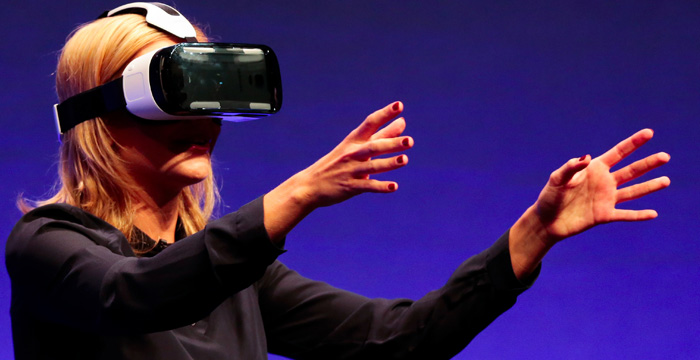At CES in Las Vegas yesterday, 28 companies announced the Virtual Reality Industry Forum, Inc. (VRIF), a not-for-profit company with its purpose stated as, “To further the widespread availability of high-quality audiovisual VR experiences, for the benefit of consumers.” The Founding Members of VRIF are Akamai Technologies, ARRIS International plc, b<>com, Baylor University, CableLabs, Cinova Media, Dolby Laboratories, DTG, DTS, EBU, Ericsson, Fraunhofer, Harmonic, Huawei, Intel, Irdeto, Ittiam, MovieLabs, NABPILOT, Qualcomm Technologies, Inc., Technicolor, TNO, Sky, Sony Pictures, Vantrix, Verizon, Viaccess-Orca and Orah.
The Forum has grown out of a series of informal meetings, initiated by the DTG, and held over the past 12 months, which involved over 200 people from a large group of companies. The group discussed how to advocate consensus around industry standards for the creation of an interoperable, end-to-end ecosystem presenting high-quality audio-visual VR services. These are services where users can experience audiovisual content, live or on-demand, through VR headsets but also on traditional “2D devices” such as tablets.
“We hope to ensure that the VR industry avoids the fragmentation of standards and formats that has plagued audio-visual media in the past,” said Business Development at Ericsson, VP, David Price. “We expect that many of those involved in the original informal discussions will join VRIF shortly.”

Broadcast Strategy at Sky, chief engineer, Chris Johns said: “VRIF will seek to establish best practices to ensure a high-quality user experience, and we believe this is crucial for the market to take off. We all expect that 2017 will be the year when intense consumer interest in VR spurs a quantum leap in the user experience.”
The goals of VRIF include:
- Advocating voluntary industry consensus around common technical standards for the end-to-end VR ecosystem, from creation to delivery and consumption
- Advocating the creation and adoption of interoperable standards (VRIF will not develop standards itself); promoting the use of common profiles across the industry, and promoting and demonstrating interoperability
- Developing voluntary guidelines that describe best practices, to ensure high quality VR experiences
- Describing and promoting the use of VR services and applications
VRIF is open to all parties that support its purpose, and is complementary to other industry organizations in that it will focus on the end-to-end ecosystem for media and entertainment VR.